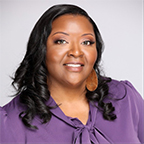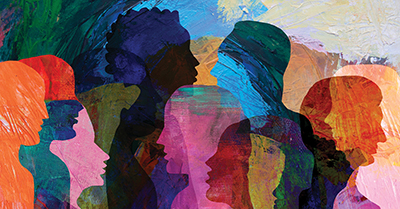By Tashi McQueen
(AFRO Staff Writer, tmcqueen@afro.com)

Each year World Mental Health Day serves as a time for the members of the community to focus on their mental and emotional health.
According to the World Health Organization (WHO), “the day provides an opportunity for all stakeholders working on mental health issues to talk about their work, and what more needs to be done to make mental health care a reality for people worldwide.”
The American Foundation for Suicide Prevention reports that “depression is the most common condition associated with suicide, and it is often undiagnosed or untreated. Conditions like depression, anxiety, and substance problems, especially when unaddressed, increase risk for suicide. Yet it’s important to note that most people who actively manage their mental health conditions go on to engage in life.”
Experts stress that family and community support can be lifesaving in preventing suicide, with simple acts like listening, showing up and connecting loved ones to care making all the difference.
When a person struggles with mental health challenges, a simple listening ear or consistent presence from family can be powerfully influential. Mental health experts Charde Hollins, Lontonia Bryant and Dorian Withrow Jr. emphasize this, highlighting the crucial role of family in suicide prevention and offering practical tips for supporting loved ones.

“Family, friends and community members are often the first to notice when something is off,” said Hollins, a licensed clinical social worker. “That makes them the front line of prevention—not because they have to ‘fix’ someone, but because they have the power to respond rather than retreat.”
Hollins said the first way to intervene is simply to listen.
“When someone shares their struggle, they’re not always asking for a solution—they’re asking for safety,” said Hollins. “Your role is to hold space without judgment and to validate instead of minimize.”
She advised avoiding clichés such as “it’s not that bad” or “think positive.” Instead, she recommends open and direct language like “thank you for trusting me with this” or “I’m here, you don’t have to go through this alone.”

Hollins said a family member can also ask directly if someone is thinking about suicide.
“Say the word,” said Hollins. “It won’t plant the idea. It creates a lifeline.”
The next step is getting professional help.
“In my work training communities and organizations in mental health first aid and QPR (Question, Persuade, Refer), I’ve seen how everyday people can learn to spot warning signs, ask clear questions, de-escalate and connect someone to care,” said Hollins.
Hollins said the best support is knowing when to refer someone to a professional, rather than trying to rescue them on their own.
“Just because you know CPR doesn’t mean you skip the hospital afterward. The skills keep someone stable until professional help arrives,” said Hollins. “The same logic applies to mental health.”
She acknowledged medical distrust in the Black community is real and justified but emphasized the importance of not letting health issues go unaddressed.

“Look for culturally responsive providers, ask about their experience with Black clients, bring a support person if needed, and use telehealth if access is a barrier,” said Hollins. “Mental health is health. Your best friend and support system can love you, but they shouldn’t be your only plan of care, it’s not sustainable.”
From 2018 to 2023, suicide rates in the U.S. rose significantly among Black and Hispanic individuals, by 25.2 percent and 10 percent, respectively, while declining 3.1 percent among White individuals, according to the Centers for Disease Control and Prevention (CDC).
Bryant, a mental health counselor, said family support can be monumental in the Black community.
“Family is the backbone of our community and is the safe haven for many,” said Bryant. “For some the family unit is a place of support without judgement, being heard, guided and sharing personal struggles. This is very important when things are overwhelming.”
If someone doesn’t have family to lean on, support from their community can be just as valuable.
“It takes a village with love, support and guidance to form the circle of support that is needed to help our youth,” said Bryant. “When we come together as a community and can openly talk about different things affecting our youth, whether it is suicide, mental health or education, it lessens the silence.”
Suicide is a leading cause of death for children and young adults in the U.S. In 2023, it was the second leading cause of death for people ages 10 to 34, according to the National Institute of Mental Health.
Withrow, a licensed clinical social worker, said feeling invisible can lead to suicidal thoughts.
“Many people don’t believe anyone truly sees or cares about their problems,” said Withrow. “As a result, they begin to internalize the belief that no one will help which can lead to isolation, withdrawal and in some cases, antisocial behavior. That behavior may take the form of aggression, theft, destruction, or, tragically, self-harm or suicide.”
Suicide can be a desperate attempt to be seen.
“This is where family, friends and neighbors really matter,” said Withrow. “When we give someone our full attention—open, honest and present—it can be what pulls them from the edge of despair toward hope.”
Withrow added it’s not about saying all the right words but simply showing up.
“In our communities, we show up with food, rides and prayer,” said Hollins. “Keep doing that and add resources, boundaries and referrals. You don’t have to be a therapist, you have to be a bridge. Love and action can get some

